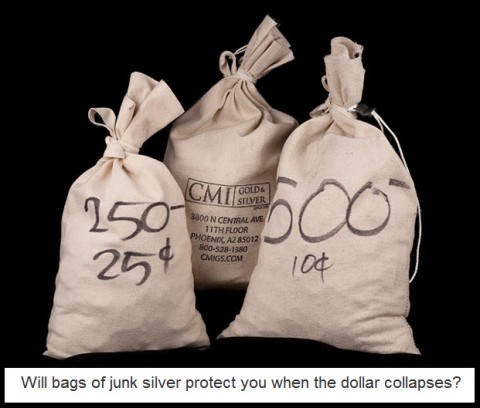With deflation tightening its choke-hold on the global economy, we thought we’d drop in on our supposed nemesis, Gonzalo Lira, to see how he was coping in these very un-hyperinflationary times. To his credit, the erstwhile arch-inflationist, bending to reality, has acknowledged forthrightly that deflation rules the economic and financial worlds right now.
“Yields are low, unemployment up, CPI numbers are down (and under some metrics, negative) – in short, everything screams ‘deflation.’ ” He wrote those words a month ago in an essay entitled How Hyperinflation Will Happen, and although we are obliged to point out below certain dangers in relying too heavily on the scenario he describes, readers should trust, as we do, that he has gotten the big picture right. For, as he asserts, economic recovery is no longer remotely possible for the U.S. Nor is it a case of double-dipping into recession, as most economists and the mainstream media would have it. In fact, as Lira flatly declares, we never emerged from the first recession. The inevitable result, he says – and we must unfortunately concur — is that an epic financial panic centered on the dollar’s collapse is coming, and it will push the U.S. from intractable recession into full-blown Depression.

As to how we might prepare for this, Lira has his ideas and we have ours. Possessing physical bullion in any form, as he would doubtless agree, will be a part of the solution no matter what.
Where we part company, however, is on the crucial question of whether any of us will be able to respond defensively, let alone advantageously, once the avalanche has begun. While Lira talks about shifting assets from paper to real goods as hyperinflation plays out, our fear is that the dollar’s complete destruction will occur so swiftly – think May 2010’s flash crash, but on a global scale – that there will be no chance for anyone to liquidate intangibles (to whom?) in order to replace them with real goods. For all we know, the world’s bourses will be shuttered for a week or longer, diverting angry mobs to branch banks that, as the mobs will discover, hold precious little cash in their vaults. Under the circumstances, it’s possible investors will have no opportunity to get money out of banks, or cash out of stocks, much less catalyze a hyperinflation by re-investing the proceeds in Lira’s short list of defensive assets: “residential property, as well as equities in long-lasting industries; mining, pharma and chemicals especially, but no value-added companies, like tech, aerospace or industrials.”
‘Burp’ Starts a Panic
Where would that cash come from – and what would even constitute “cash” in our all-too-digital financial system? And if The Players can get their hands on piles of cash, miraculously liquidating stocks into a collapsing market and having their trades settle instantly, how much of that cash could they deploy, given that lock-limit rules would effectively bar all but a lucky handful of commodity bidders from getting aboard? ... continue at original source
